Gold , Oil & The Dollar
October 24, 2006 2:30 a.m. ET (4:30 p.m. AET)
Gold
Medium Term: Falling oil prices have eased inflationary expectations, causing a drop in demand for gold.
Long Term: A fall below support at $540 would signal a primary trend reversal. However, given current political instability, gold appears to have more upside than downside potential in the long-term.
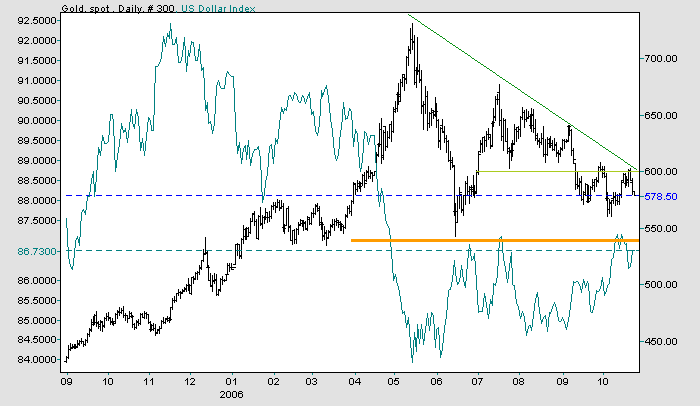
Crude Oil
Medium Term: Expect further support at $55.
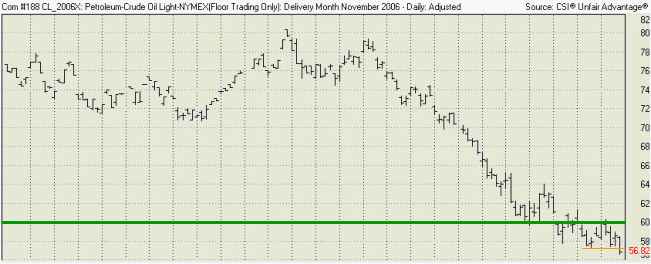
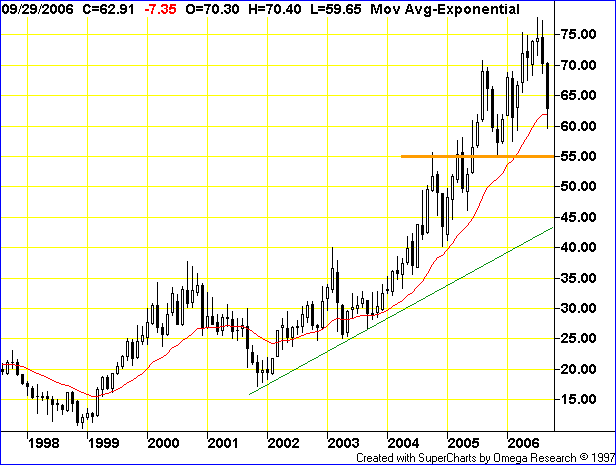
Currencies
Medium Term: Descending highs suggest weakness -- failure of $1.245 would be likely to test primary support at $1.165. A less likely scenario is respect of support and a rise above $1.265, signaling a reversal.
Long Term: Penetration of primary support at $1.165 would complete a large head and shoulders pattern, but that is only one of many possibilities at this stage.
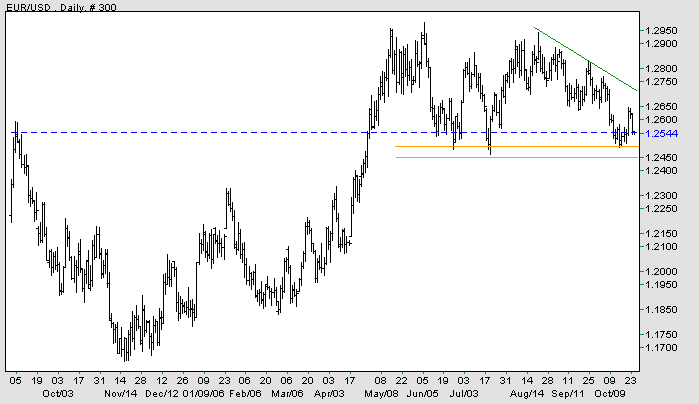
Treasury yields
Medium Term: If the 10-year yield respects support at 4.60% that will confirm we are still in a primary up-trend. Failure of support at 4.60% appears unlikely at this stage.
The yield differential (10-year T-notes minus 13-week T-bills) remains below zero, warning of further weakness in the economy.
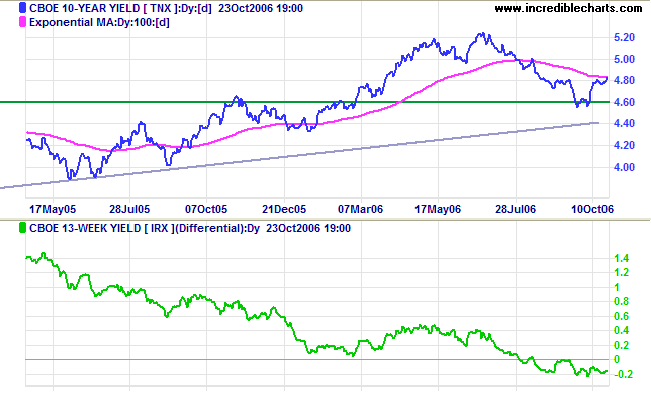
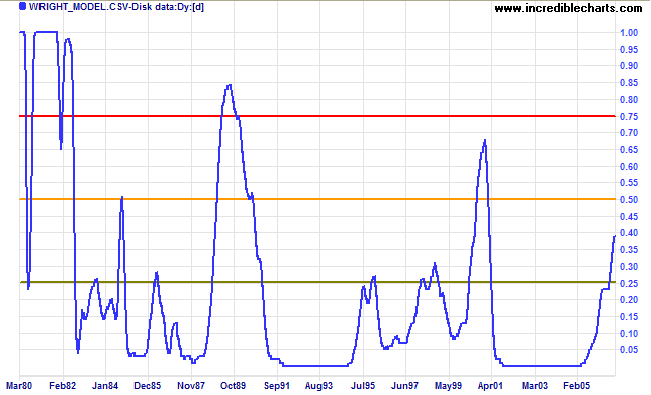
compassionate with the aged, sympathetic with the striving
and tolerant of the weak and the strong.
Because someday in life you will have been all of these.
~ George Washington Carver
|
Technical Analysis and Predictions I believe that Technical Analysis should not be used to make predictions because we never know the outcome of a particular pattern or series of events with 100 per cent certainty. The best that we can hope to achieve is a probability of around 80 per cent for any particular outcome: something unexpected will occur at least one in five times. My approach is to assign probabilities to each possible outcome. Assigning actual percentages would imply a degree of precision which, most of the time, is unachievable. Terms used are more general: "this is a strong signal"; "this is likely"; "expect this to follow"; "this is less likely to occur"; "this is unlikely"; and so on. Bear in mind that there are times, especially when the market is in equilibrium, when we may face several scenarios with fairly even probabilities. Analysis is also separated into three time frames: short, intermediate and long-term. While one time frame may be clear, another could be uncertain. Obviously, we have the greatest chance of success when all three time frames are clear. The market is a dynamic system. I often compare trading to a military operation, not because of its' oppositional nature, but because of the complexity, the continual uncertainty created by conflicting intelligence and the element of chance that can disrupt even the best made plans. Prepare thoroughly, but allow for the unexpected. The formula is simple: trade when probabilities are in your favor; apply proper risk (money) management; and you will succeed. For further background, please read About The Trading Diary. |

Author: Colin Twiggs is a former investment banker with almost 40 years of experience in financial markets. He co-founded Incredible Charts and writes the popular Trading Diary and Patient Investor newsletters.
Using a top-down approach, Colin identifies key macro trends in the global economy before evaluating selected opportunities using a combination of fundamental and technical analysis.
Focusing on interest rates and financial market liquidity as primary drivers of the economic cycle, he warned of the 2008/2009 and 2020 bear markets well ahead of actual events.
He founded PVT Capital (AFSL No. 546090) in May 2023, which offers investment strategy and advice to wholesale clients.
